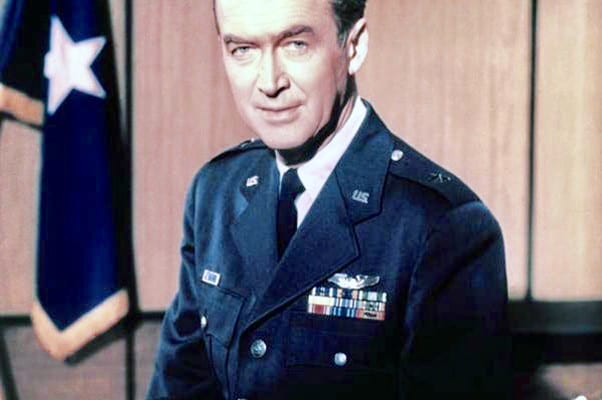Robert Bentley, a Republican, served as governor of Alabama from 2011 to 2017. Don Siegelman, a Democrat, was governor of Alabama from 1999 to 2003.
Alabama has 167 people on death row, a greater number per capita than in any other state. As far as the two of us are concerned, that is at least 146 people too many. Here’s why.
As former Alabama governors, we have come over time to see the flaws in our nation’s justice system and to view the state’s death penalty laws in particular, as legally and morally troubling. We both presided over executions while in office, but if we had known then what we know now about prosecutorial misconduct, we would have exercised our constitutional authority to commute death sentences to life.
According to the Death Penalty Information Center, since 1976, nationwide, 1 person on death row has been exonerated for every 8.3 executions. That means we have been getting it wrong about 12 percent of the time. If we apply those statistics to the 167 people on Alabama’s death row, it means that as many as 20 could have been wrongfully charged and convicted.
The center has found that wrongful convictions are “overwhelmingly the product of police or prosecutorial misconduct or the presentation of knowingly false testimony.” Judge Alex Kozinski, former chief judge of the U.S. Court of Appeals for the 9th Circuit, has said the withholding of exculpatory evidence by prosecutors is an “epidemic” in the United States. Shamefully, such misconduct most frequently involves Black defendants (87 percent).
Alabama has not been spared miscarriages of justice. The first known exoneration from the state’s death row was of Walter McMillian, whose case was highlighted by Equal Justice Initiative founder Bryan Stevenson in his book “Just Mercy.” But there are other death row convictions that should haunt Alabama’s leaders.
In 1998, a non-unanimous jury recommended death for Toforest Johnson for the killing of an off-duty sheriff’s deputy based on the testimony of someone who, unknown to the defense, was later paid a $5,000 reward. The case of Rocky Myers, convicted of murdering his neighbor, is even more disturbing. Myers was never connected to the murder scene, and even though the jury recommended life without parole, the judge overrode the recommendation and ordered his execution.
One of us, Don Siegelman, is personally haunted by the case of Freddie Wright, whose execution he could have commuted but did not in 2000. Twenty-three years later, Siegelman believes Wright was wrongfully charged, prosecuted and convicted for a murder he most likely did not commit.
Since 1976, when the Supreme Court granted prosecutors immunity from civil liability, it has been common for prosecutors to get close to 99 percent of the indictments they seek from grand juries. One reason for this is that grand juries are secret proceedings, with no lawyers present and no judge to oversee what prosecutors are doing. In this stealth setting, prosecutors have free rein to present false testimony or false evidence or to withhold exculpatory evidence to get the outcome they want.
Before 1976, the U.S. incarceration figure hovered around 200,000 people. After 1976, the number skyrocketed to more than 1.6 million. With the legal cover of the 1976 decision, President Barack Obama’s solicitor general argued to the Supreme Court in January 2010 that “U.S. citizens do not have a constitutional right not to be framed.” Ending unjust convictions will involve rethinking prosecutorial immunity.
In 2020, the Supreme Court ruled that a unanimous verdict is required to convict someone of a capital crime warranting death. The court highlighted the racist underpinnings of non-unanimous verdicts as a Jim Crow practice dating from the 1870s. Alabama had been the only state to allow a person to be sentenced to death by this legal relic and has 115 people scheduled to die based on non-unanimous jury verdicts. Because the court’s ruling didn’t explicitly extend to the sentencing phase, Florida Gov. Ron DeSantis (R), using “tough on crime” rhetoric, recently signed a law that now allows a jury to recommend a death sentence on an 8-4 vote.
Alabama was also the last state to ban judicial overrides, a practice whereby judges were able to overrule jury verdicts of life without parole and order death. The Equal Justice Initiative had raised a concern about this practice, finding that “the proportion of death sentences imposed by override had often been elevated in election years.” Judicial overrides accounted for 7 percent of death sentences in a nonelection year but rose to 30 percent when Alabama judges ran for reelection.
In 2017, Alabama Gov. Kay Ivey, a Republican, signed a law banning judicial overrides. But it was not applied retroactively, so 31 Alabamans, including Myers, are still scheduled to die based on this outlawed practice.
Alabama is one of 27 states that retain the death penalty. Of those, 14 have not conducted an execution in 10 years, according to the Death Penalty Information Center, and the governors of five states (Arizona, California, Ohio, Oregon and Pennsylvania) have said they will not oversee an execution during their terms.
As governors, we had the power to commute the sentences of all those on Alabama’s death row to life in prison. We no longer have that constitutional power, but we feel that careful consideration calls for commuting the sentences of the 146 prisoners who were sentenced by non-unanimous juries or judicial override and that an independent review unit should be established to examine all capital murder convictions.
We missed our chance to confront the death penalty and have lived to regret it, but it is not too late for today’s elected officials to do the morally right thing.

